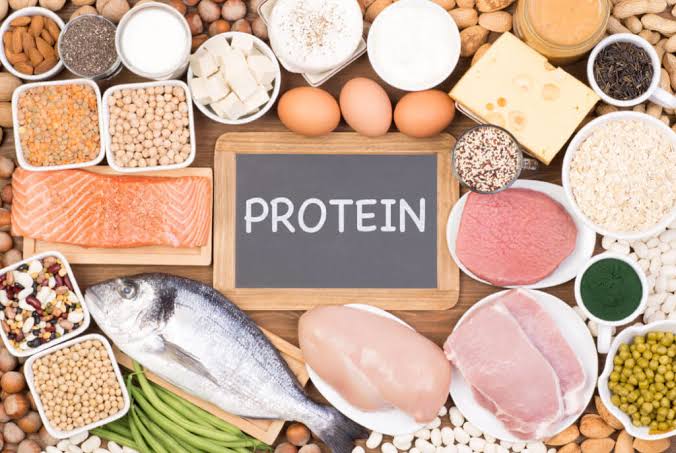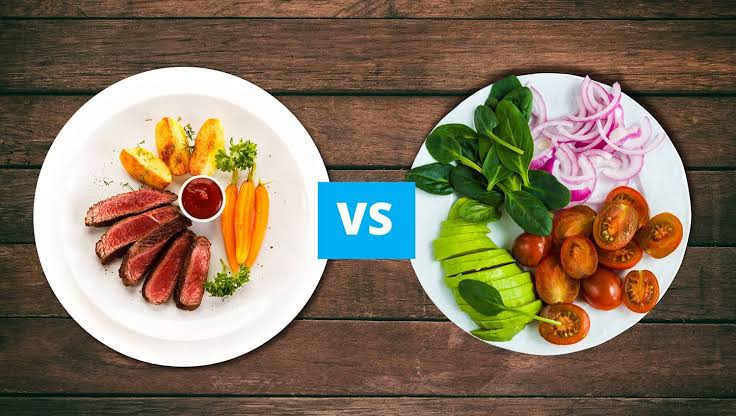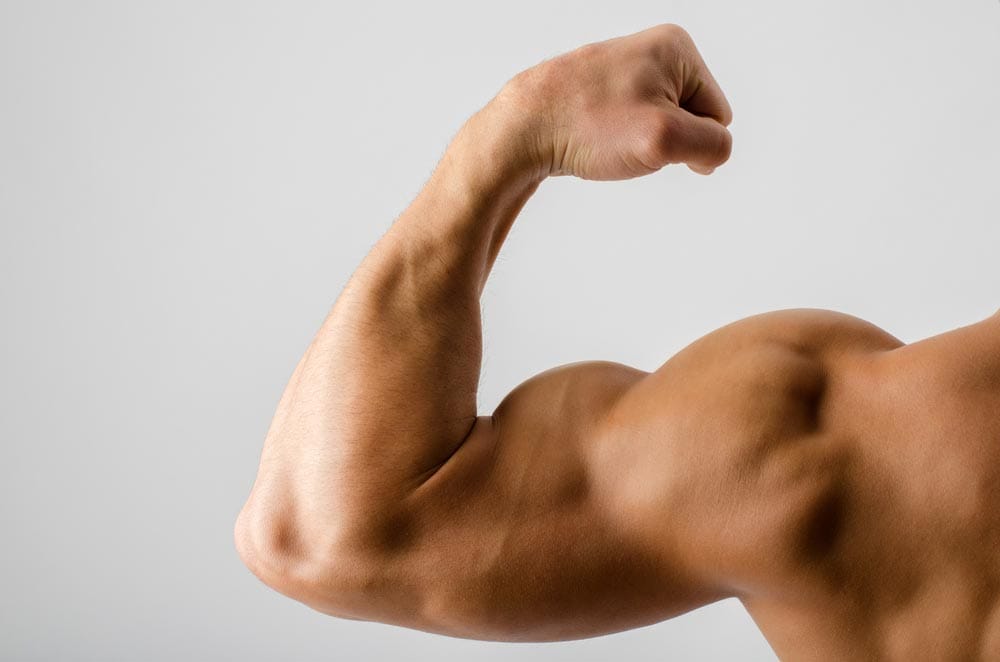
How Much Protein Do You Really Need? A Complete Guide for Weight Loss and Strength Training
Protein is key for weight loss, muscle growth, and overall fitness. Daily needs vary by activity, age, and goals, with active individuals requiring higher intake. Proper timing, quality sources, and distribution throughout the day enhance results. Both animal and plant proteins work, while powders offer convenience.
💪 Fitness Guru
37 min read · 24, Sep 2025

Introduction
Protein is often called the building block of the body—and for good reason. It’s essential for muscle repair, hormone production, immune function, and overall metabolism. For people looking to lose weight or gain strength, protein becomes even more important. Yet, confusion about how much protein to eat is widespread. Some overeat, thinking “more is better,” while others don’t get enough, slowing progress and risking muscle loss.
In this guide, we’ll break down how much protein you really need, the science behind it, how protein supports weight loss and strength training, and practical tips for daily intake. By understanding your protein needs, you can fuel your workouts, preserve lean muscle, and reach your fitness goals efficiently. Protein is one of the most important nutrients for anyone looking to lose weight or build strength. It plays a crucial role in maintaining muscle mass, repairing tissues, and supporting a healthy metabolism. Despite its importance, many people are unsure exactly how much protein they need. Consuming too little can limit your progress, while consuming too much may put unnecessary strain on your kidneys if done excessively. Understanding the right amount for your goals is key to achieving optimal results.
Protein is made up of amino acids, often referred to as the building blocks of the body. These amino acids are essential for muscle repair, hormone production, enzyme function, and overall cellular health. When you engage in strength training or resistance exercises, your muscles undergo microscopic damage. Protein helps repair these fibers, allowing them to grow back stronger and bigger. For weight loss, protein is equally important because it helps maintain lean muscle mass while you are in a calorie deficit. Lean muscle tissue burns more calories at rest than fat tissue, which means higher protein intake can support a more efficient metabolism.
The exact protein requirement varies depending on factors such as age, gender, weight, activity level, and overall health goals. For sedentary adults, general dietary guidelines suggest around 0.8 grams of protein per kilogram of body weight per day. This means a person weighing 70 kilograms (154 pounds) would need about 56 grams of protein daily. However, this baseline is designed to prevent deficiency and may not be optimal for those actively trying to lose fat or build muscle. People who engage in regular exercise, especially strength training, require more protein to support muscle repair and growth.
For individuals focused on weight loss, protein plays a dual role. Firstly, it helps preserve lean muscle mass when you are in a calorie deficit. Losing weight often involves reducing calories, but without sufficient protein, your body may break down muscle tissue for energy, slowing down metabolism and reducing the effectiveness of your fat loss efforts. Secondly, protein increases satiety, which helps control appetite and reduce overall calorie intake. Meals higher in protein tend to keep you fuller for longer, reducing the temptation to snack on unhealthy foods. Research shows that increasing protein intake to around 1.2 to 2.0 grams per kilogram of body weight per day can improve weight loss results and preserve muscle mass.
For those focused on strength training or building muscle, protein needs are generally higher. The body requires a steady supply of amino acids to repair and grow muscle fibers after intense workouts. Studies suggest that consuming between 1.6 to 2.2 grams of protein per kilogram of body weight per day is effective for most people engaged in regular resistance training. For example, someone weighing 70 kilograms might aim for 112 to 154 grams of protein daily. It is also beneficial to distribute protein intake evenly across meals, ideally consuming 20 to 40 grams per meal, which maximizes muscle protein synthesis throughout the day.
The source of protein also matters. High-quality protein sources contain all the essential amino acids your body cannot produce on its own. Animal-based proteins like eggs, poultry, fish, lean beef, and dairy products are considered complete proteins. Plant-based options such as beans, lentils, quinoa, tofu, and tempeh can also provide adequate protein, but it may require combining different sources to ensure all essential amino acids are consumed. For those on vegetarian or vegan diets, careful planning is necessary to meet protein requirements, but it is entirely achievable with variety and consistency.
Timing can play a role, though it is not as critical as total daily intake. Consuming protein soon after a workout can aid in muscle recovery, but spreading protein intake evenly across the day is more important for long-term gains and muscle maintenance. Some athletes and fitness enthusiasts also include protein supplements such as whey, casein, or plant-based powders to meet their daily requirements conveniently, especially when whole food intake is insufficient. These supplements can be effective but should complement a balanced diet, not replace whole food sources entirely.
It is also important to recognize that individual needs may vary. Factors such as age, metabolic rate, activity level, and even genetics can influence how much protein is optimal. Older adults, for instance, may require higher protein intake to counteract age-related muscle loss, known as sarcopenia. Additionally, extremely high protein diets are generally unnecessary for most people and can be costly or difficult to sustain. Moderation, balance, and consistency are key components of a successful nutrition strategy.
While protein is essential, it is only one part of the overall nutritional picture. Carbohydrates and fats are also necessary for energy, hormone function, and overall health. A balanced approach that includes sufficient protein, complex carbohydrates, healthy fats, and plenty of vegetables and fruits will provide the best results for both weight loss and strength training. Drinking enough water and getting adequate sleep are equally important, as hydration and rest directly influence recovery and performance.
In conclusion, protein is a vital nutrient for weight loss and strength training, but the right amount depends on your goals, body weight, and activity level. Sedentary individuals need the lowest amount, while those aiming to lose fat or gain muscle require higher intake. A general guideline for active adults is 1.2 to 2.2 grams of protein per kilogram of body weight per day, spread across meals and sourced from high-quality foods. Understanding your protein needs and incorporating sufficient protein into your diet can help you preserve muscle, enhance metabolism, improve recovery, and support long-term health. With the right strategy, protein can be a powerful tool in achieving your fitness goals while maintaining overall well-being.
Understanding Protein and Its Role in the Body
Protein is made up of amino acids, which are the building blocks of muscles, skin, hair, and even enzymes. There are 20 amino acids, 9 of which are essential—meaning your body cannot produce them and you must get them from food.
Key roles of protein include:
- Muscle growth and repair: Repairs damage caused by exercise, especially strength training.
- Metabolism support: Protein requires more energy to digest, boosting calorie burn.
- Satiety: Keeps you full, reducing cravings and overeating.
- Hormone and enzyme production: Crucial for regulating metabolism, stress response, and immunity.
- Weight management: Preserves lean mass during calorie deficits.
How Much Protein Do You Need? The Basics
Protein needs vary based on age, activity level, fitness goals, and body weight. General guidelines:
- Sedentary adults: 0.8–1 gram of protein per kilogram of body weight.
- Active adults & moderate exercise: 1.2–1.6 grams/kg.
- Strength training or muscle gain: 1.6–2.2 grams/kg.
- Weight loss with muscle preservation: 1.8–2.2 grams/kg.
Example:
A 60 kg person doing strength training may need 96–132 grams of protein per day (60 × 1.6–2.2).
Protein for Weight Loss
Protein supports weight loss by:
- Reducing Hunger and Cravings
- High-protein meals increase satiety hormones like GLP-1 and PYY, reducing appetite naturally.
- Preserving Lean Muscle
- When losing weight, calorie deficits can break down muscle. Adequate protein protects muscle while losing fat.
- Boosting Metabolism
- Protein has a higher thermic effect compared to carbs or fats—your body burns more calories digesting it.
- Improving Blood Sugar Control
- Protein slows digestion and prevents spikes in blood sugar, reducing fat storage.
Tips for Weight Loss:
- Include protein in every meal.
- Pair with fiber-rich carbs and healthy fats for longer satiety.
- Spread protein intake across 3–5 meals for optimal absorption.
Protein for Strength Training
Protein is essential to maximize muscle growth and recovery:
- Muscle Repair and Growth
- Strength training causes micro-tears in muscle fibers. Protein provides amino acids to repair and grow stronger muscles.
- Enhanced Performance
- Adequate protein fuels workouts and improves endurance over time.
- Recovery and Reduced Soreness
- Protein-rich meals or shakes post-workout help reduce muscle soreness and inflammation.
Tips for Strength Training:
- Aim for 20–40 grams of protein per meal, depending on body size.
- Include a protein source within 30–60 minutes after workouts.
- Rotate protein types: lean meats, fish, eggs, dairy, and plant-based sources.
Sources of Protein
Animal-based proteins:
- Eggs, chicken, turkey
- Fish (salmon, tuna, cod)
- Lean beef and lamb
- Greek yogurt, cottage cheese, milk
Plant-based proteins:
- Lentils, chickpeas, and beans
- Tofu and tempeh
- Quinoa, oats, and amaranth
- Nuts, seeds, and peanut butter
Supplemental proteins:
Whey, casein, or plant-based protein powders can help meet targets, especially post-workout or during busy days.
How to Calculate Your Daily Protein Needs
- Determine Body Weight: Use kilograms for calculation (1 kg = 2.2 lbs).
- Choose Goal-Based Multiplier: Sedentary (0.8–1 g/kg), weight loss or strength training (1.6–2.2 g/kg).
- Multiply: Body weight × chosen protein factor.
- Distribute Intake: Spread across meals (e.g., breakfast, lunch, dinner, snacks).
Example for a 70 kg person doing strength training:
70 × 2 g = 140 g protein/day
- Breakfast: 30 g
- Lunch: 40 g
- Snack: 20 g
- Dinner: 40 g
- Optional: 10 g post-workout shake
Timing Protein Intake
Protein timing can impact muscle growth and recovery:
- Pre-workout: Small protein snack (10–20 g) can fuel muscles.
- Post-workout: Consume protein within 30–60 minutes to maximize repair.
- Evening: Casein or slow-digesting protein before bed prevents overnight muscle breakdown.
Common Protein Myths Busted
“More protein = more muscle instantly.”
→ False. The body can only use a certain amount per meal. Excess protein may be stored as fat.
“Protein is bad for kidneys.”
→ False for healthy individuals. Only those with kidney disease need restrictions.
“Plant protein is incomplete.”
→ False. Combine legumes, grains, nuts, and seeds to get all essential amino acids.
“You need protein shakes to succeed.”
→ Not true. Whole foods are equally effective; shakes are just convenient.
“Older adults don’t need as much protein.”
→ Wrong. Older adults may need slightly more (1.2–1.5 g/kg) to preserve muscle mass.
Daily Protein Practices for Fitness and Weight Loss
Morning Routine:
- Protein-rich breakfast: eggs, Greek yogurt, oats with nuts
- Optional: protein smoothie with fruit and seeds
Midday:
- Lunch: lean meat, legumes, or tofu with vegetables
- Include a protein snack like roasted chickpeas or nuts if needed
Pre/Post-Workout:
- Pre: small protein snack (yogurt, egg)
- Post: shake or meal with protein + carbs for recovery
Evening:
- Dinner: lean fish, paneer, or lentils
- Optional: slow-digesting protein like casein or cottage cheese before bed
Weekly Habits:
- Track protein intake for accuracy
- Rotate protein sources for variety and nutrition
- Pair protein with vegetables, healthy fats, and fiber for best results
- Hydrate well to support metabolism and kidney function
Signs You’re Not Getting Enough Protein
- Fatigue or low energy
- Muscle loss or poor recovery
- Increased cravings or overeating
- Weak hair, nails, or skin
- Slower metabolism
Conclusion
Protein is essential—not just for bodybuilders, but for anyone looking to lose weight, gain strength, or maintain a healthy metabolism. Understanding how much protein you need, when to consume it, and choosing the right sources can dramatically improve fitness results, energy levels, and body composition.
Remember: quality and consistency matter more than extremes. Spread your protein intake throughout the day, combine it with strength training, and choose a variety of sources. Even small adjustments like adding Greek yogurt to breakfast or lentils to dinner can make a huge difference over time.
Start today—calculate your needs, plan your meals, and watch your body respond. Your muscles, metabolism, and overall health will thank you.
Q&A Section
Q1:- What is protein and why is it important for weight loss and strength training?
Ans :- Protein is a macronutrient made of amino acids that build and repair muscles, regulate hormones, and support metabolism, making it essential for fat loss and muscle growth.
Q2:- How much protein should an average adult consume daily?
Ans :- The Recommended Dietary Allowance (RDA) is 0.8 g per kg of body weight, but active adults aiming for weight loss or strength training may need 1.2–2.2 g per kg.
Q3:- Does protein timing affect muscle growth?
Ans :- Consuming protein throughout the day, especially post-workout, helps muscle repair and growth. Spreading intake evenly over 3–5 meals is ideal.
Q4:- Can you get enough protein from plant-based sources?
Ans :- Yes. Foods like lentils, chickpeas, tofu, quinoa, and nuts provide sufficient protein when combined to cover all essential amino acids.
Q5:- How does protein help with weight loss?
Ans :- Protein boosts satiety, reduces appetite, preserves lean muscle mass during calorie deficits, and increases thermogenesis, helping burn more calories.
Q6:- Is there a maximum safe protein intake?
Ans :- Most healthy adults can safely consume up to 2.5–3 g per kg of body weight daily. Excessive intake over long periods may stress kidneys in susceptible individuals.
Q7:- How do protein powders fit into a fitness plan?
Ans :- Whey, casein, or plant-based powders provide a convenient, high-quality protein source, especially for those struggling to meet daily needs through whole foods.
Q8:- Should protein intake vary for weight loss vs strength training?
Ans :- Yes. Weight loss emphasizes moderate to high protein (1.6–2.2 g/kg) to preserve muscle, while strength training may require slightly higher intakes for optimal recovery and growth.
Q9:- What role do amino acids play in muscle building?
Ans :- Branched-chain amino acids (BCAAs) like leucine trigger muscle protein synthesis, helping repair micro-tears from exercise and supporting strength gains.
Q10:- How can someone calculate their ideal protein intake?
Ans :- Multiply body weight in kg by 1.2–2.2 g based on activity and goals, adjusting for age, training intensity, and overall diet composition.
Similar Articles
Find more relatable content in similar Articles

Plant-Based vs. Animal Protein: Which is Better for Your Fi..
Choosing between plant-based a.. Read More

Quantum Computing and Fitness: Predicting the Perfect Workou..
“Discover how quantum computin.. Read More

How Much Protein Do You Really Need? A Complete Guide for We..
Protein is key for weight los.. Read More

High-Protein Diets: The Secret to Building Muscle and Burnin..
High-protein diets play a vit.. Read More
© 2024 Copyrights by rFitness. All Rights Reserved.